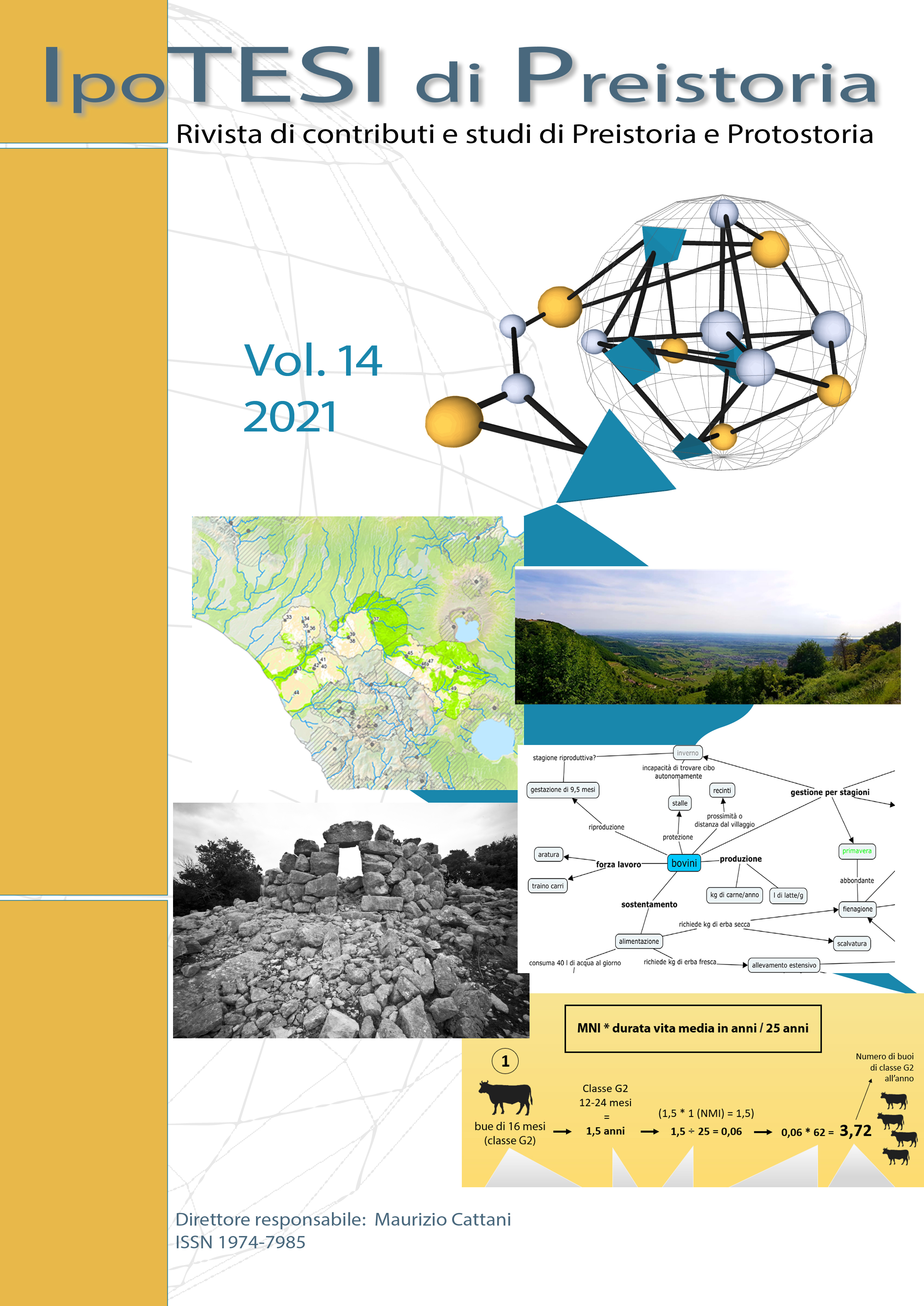Cave rituals under the magnifying glass: methodological resources to detect unicity at the italian Middle Bronze Age site of Grotta di Pastena
DOI:
https://doi.org/10.6092/issn.1974-7985/14323Keywords:
Central Italy, Cave archaeology, Italian Protohistory, Cave stratigraphy, Archaeology of ritualAbstract
The Grotta di Pastena is a magnificent show-cave in central Italy. The most promising and best-preserved archaeological deposit of the site was found in Grotticella W2 (GW2), a small chamber opening in a difficult-to-reach sector of the cave. This area dates to the Middle Bronze Age and is characterised by several anthropic features, artefacts, and biological materials, suggesting a ritual use of the cave. In critically analysing the stratigraphy of GW2’s deposit, while integrating radiocarbon dating, archaeological and bioarchaeological studies, this paper aims to reconstruct the formation processes of the deposit and the human activity which took place here. The identified ritual markers have been compared with those found in other Italian and European coeval sites, thus corroborating the proposed interpretation and assisting in redefining a usually generic definition of ritual caves. Grotticella W2 appeared to have been used as a primary burial area, which later became a ritual centre for cult activity surrounding the life-death cycle.
Downloads
Published
How to Cite
Issue
Section
License
Copyright (c) 2021 Mario Federico Rolfo, Francesca Cortese, Katia Francesca Achino, Maurizio Gatta, Leonardo Salari, Letizia Silvestri

This work is licensed under a Creative Commons Attribution-NonCommercial 3.0 Unported License.




